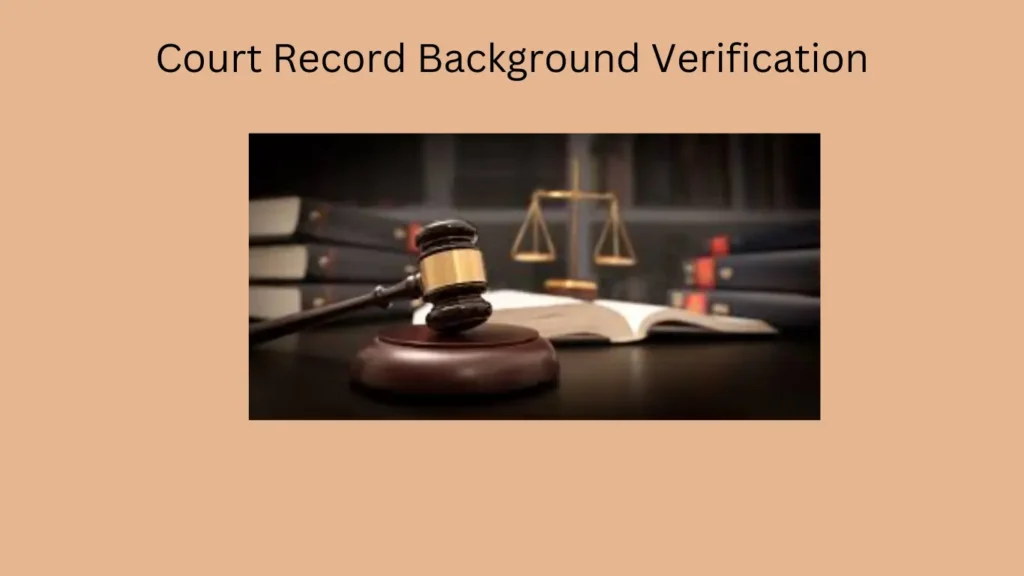What is Court Record Verification? A Comprehensive Guide
Court record verification is a crucial process that involves checking an individual’s history of legal proceedings and judgments in court. This verification helps ensure that individuals or entities have a clean legal history, making it an essential step for various personal and professional purposes. This guide provides a detailed overview of court record verification, focusing on creating helpful, reliable, people-first content.
Understanding Court Record Verification
Court record verification is the process of examining public records maintained by courts to determine if an individual or entity has been involved in any legal cases. These records can include criminal cases, civil litigation, bankruptcies, and other legal proceedings.
Why is Court Record Verification Important?
- Employment Screening: Employers use court record verification to ensure that potential employees do not have a history of criminal activity or legal issues that could affect their performance or the company’s reputation.
- Tenant Screening: Landlords perform this verification to ensure that potential tenants have a clean legal history, reducing the risk of problematic behavior.
- Business Partnerships: Companies may verify court records before entering into partnerships or contracts to avoid associating with entities that have a history of legal troubles.
- Personal Safety: Individuals may use court record verification to check the background of someone they are considering for a personal or professional relationship.
Steps Involved in Court Record Verification
1. Obtain Consent
Before initiating court record verification, it is essential to obtain written consent from the individual. This ensures compliance with legal and ethical standards.
2. Gather Basic Information
Collect the following details about the individual or entity:
- Full Name
- Date of Birth
- Address
- Identification Documents (Aadhar Card, PAN Card, etc.)
3. Access Court Records
Court records can be accessed through various methods:
- Online Databases: Many courts provide online databases where you can search for records using the individual’s name or case number.
- Court Clerks: You can visit the court clerk’s office in person to request records. Some courts may require a formal written request.
- Third-Party Services: Private agencies offer court record verification services. Ensure the agency is reputable and compliant with legal standards.
4. Review and Analyze Records
Once you obtain the records, review them carefully to identify any relevant legal proceedings or judgments. Pay attention to:
- Case Types (criminal, civil, etc.)
- Case Status (pending, resolved, etc.)
- Judgments and Sentences
5. Report Findings
Prepare a comprehensive report detailing the findings of the court record verification. Ensure the report is accurate, clear, and easy to understand.
Legal and Ethical Considerations
- Confidentiality: Maintain the confidentiality of the individual’s information throughout the process.
- Accuracy: Ensure the accuracy of the information provided and received.
- Compliance: Adhere to legal requirements and guidelines for conducting court record verification.
Conclusion
Court record verification is a vital process for ensuring safety, trust, and reliability in various personal and professional contexts. By following the steps outlined in this guide, you can conduct a thorough and reliable verification process. Always prioritize creating helpful, reliable, people-first content to foster trust and transparency.
For further Inquires Contact Us
FAQs
1. What is court record verification?
Court record verification is the process of examining public court records to check an individual’s or entity’s history of legal proceedings and judgments.
2. Why is court record verification important?
It is important for ensuring safety and reliability in employment screening, tenant screening, business partnerships, and personal relationships by revealing any legal issues or criminal history.
3. How can I access court records for verification?
Court records can be accessed through online databases provided by courts, by visiting the court clerk’s office in person, or through reputable third-party services.
4. Do I need consent to perform court record verification?
Yes, obtaining written consent from the individual is essential to comply with legal and ethical standards before conducting court record verification.
5. What information is needed to conduct a court record verification?
You will need the individual’s full name, date of birth, address, and identification documents such as an Aadhar Card or PAN Card to initiate the verification process.
